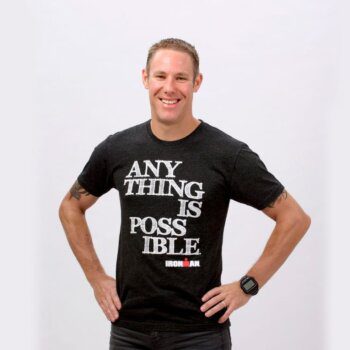What happens when our egos get too wrapped up in our work? When we confuse our title, position and even our organization with our sense of self?
Someone once told me that as kids we have a tough time separating our developing sense of self from the objects and people around us. That might explain why young children have such a hard time sharing toys – from their perspective, they’re having to give up a piece of themselves.
I’m beginning to wonder whether we ever truly get over this confusion. We so easily fuse our identities with things that aren’t actually us – and nowhere is this more true than when it comes to work.
My Work
There’s nothing wrong with feeling a sense of ownership in your work or in your businesses. But sometimes that sense of ownership moves from what you might call a sense of responsibility or accountability into seeing your organization as an extension of your ego.
Our biochemistry just isn’t designed to distinguish real threats to our physical body from perceived threats to our ego. We experience them biochemically, which is to say emotionally, as though they were one and the same thing. What that means in practical terms is that when you connect to something on an ego level, you’re hard-wired to feel quite strongly about it. A threat to that thing – whatever it is – is perceived as a threat to your ego. It doesn’t matter whether that thing is an email you wrote or an idea you’ve raised in a team meeting. When someone attacks it, it feels like an attack on you, even though strictly speaking it is not.
How do we know when our egos are in the driver’s seat at work? Look for power struggles and office politics. When you find yourself actively participating in these sinks of time and energy, it’s a good bet your ego is pulling the strings. Learning to see these dramas in business as clashes of ego isn’t all that tough, of course, especially when one of the egos in question doesn’t happen to be our own.
There’s nothing wrong with having an ego in business. The problem is when feeding your ego gets in the way of fulfilling your mission or staying externally focused on what’s going on in the market.
My Business
Where all this becomes a serious issue is when the ego in question has real positional power within your organization. It doesn’t matter whether it’s the CEO or a divisional head, the “ego-driven business” leaves a trail of empire building that isn’t always rational or even necessarily in the interest of your business.
The ego-driven management style doesn’t always correlate with good business performance. In fact, as Jim Collins showed in his book, Good to Great, just the opposite is true. Collins talks about “Level 5 Leaders” who are actually quite humble on a personal level, but show tremendous drive and passion for their organizations to succeed. This ability to set aside personal ego for the sake of the business proved to be an “essential” element in the superior performance of the great companies that Collins followed in his research.
Me, My Business, and I
The ego-driven business doesn’t just harm businesses though. It can also hurt us as individuals.
Nowhere is this more clear than when organizations fall apart, as they do from time to time. I speak from personal experience here, having just recently witnessed the failure of an organization that I used to run several years ago. It was an agonizing process to watch precisely because my ego was still wrapped up in the organization, and that’s not easy to admit.
Each of us desperately wants to make a dent in the world. But we are also surrounded by mysterious panel-beating forces, relentlessly focused on “undenting” the dents we leave behind. In our longing for legacy, it’s easy to become attached to those dents. It hurts when they’re banged back into nothing.
Ego in Business: Learning to See It
Your ego is an essential aspects of who you are. So it’s not a question of denying your ego, so much as recognizing the telltale signs of when it’s blocking your deeper purpose. That purpose is what fuels Level 5 Leadership. It’s also what fuels our connection to a powerful company mission and to the people who make that mission possible.
Learning to recognize when your ego is driving your business can be tough. Sometimes it takes the wise counsel of a trusted friend or advisor to see it. The first step though is knowing that we have an ego – and that it isn’t always working in our highest interest, or the highest interests of our business.
_________________________________________________
About the Author
This article was written by Gideon Rosenblatt of The Vital Edge. Gideon ran an innovative social enterprise called Groundwire for nine years. He worked at Microsoft for ten years in marketing and product development, and created CarPoint, one of the world’s first large-scale e-commerce websites in 1996. The Vital Edge explores the human experience in an era of machine intelligence.





























